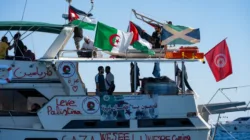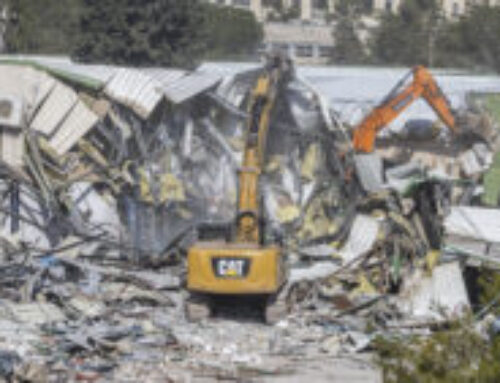Out in open waters, where there are no borders and no barbed wires, the ships of the Sumud Flotilla sailed carrying food, medicine, and messages of freedom.
Forty vessels carried more than 500 activists from around 40 countries — including public figures, academics, doctors, and artists — all united by one goal: to break the siege on Gaza.
From Tunisia, Italy, Spain, and other Mediterranean ports, the flotilla set sail as a cross-continental hope, a cry of conscience in the face of international silence.
But the humanitarian voyage soon became the target of a violent assault by the usurping entity. Warships surrounded the flotilla more than 70 nautical miles off Gaza’s coast, deep in international waters.
Israeli forces stormed 13 ships, including the lead vessel Alma, and seized others such as Sirius and Adara, which carried activists from Britain, New Zealand, and the United States.
Dozens of participants were detained and taken to an unknown destination, while the occupation attempted to reroute the ships toward the port of Ashkelon. What began as a humanitarian journey turned into a new chapter of piracy — a blatant violation of international law in full view of the world.
Yet the story did not end at sea. On land, the world erupted. In Rome, Berlin, Paris, Athens, and Barcelona, thousands took to the streets chanting against the piracy of the usurping entity. In London, voices rose in defense of Gaza’s freedom, while Istanbul’s squares overflowed with demonstrators.
In Tunisia, massive protests were held in solidarity with the flotilla. In Nouakchott, crowds gathered outside the U.S. embassy to denounce the assault. In Naples, the main train station was shut down in protest, and in Milan, large rallies filled the streets with Palestinian flags and chants of defiance.
From Europe to North Africa, from Asia to Latin America, a global wave of popular anger rose to declare that Gaza is no longer alone in this struggle. These demonstrations were not mere symbolic gestures; they were acts of civil resistance that exposed the usurping entity and laid it bare before the world’s conscience. The image of a humanitarian flotilla being crushed at sea quickly echoed in the streets as an ethical question: by what logic are ships carrying nothing but food and medicine attacked, while the so-called international community looks away in silence?
This assault stripped bare the falsehood of the “international order,” revealing instead that truth is written in the squares and streets: the people stand with Gaza, while governments persist in complicity through silence and betrayal.
Meanwhile, the remaining ships of the flotilla continue their voyage, defying danger and pressing forward. As the usurping entity attempts to impose its piracy, solidarity widens and images of protests spread from five continents, forming a global wall of resistance. The Sumud Flotilla has become more than ships cutting through the sea — it is now a symbol of humanity’s rebellion against siege, and an icon of people’s unity in the face of war.
What unfolded yesterday was no ordinary event in the Mediterranean. It was a defining moment that places the world at a new crossroads: either the siege is lifted and Gaza is allowed to live, or the sea will remain a witness to the betrayal of silence — while the streets cry out that Palestine is not alone.





